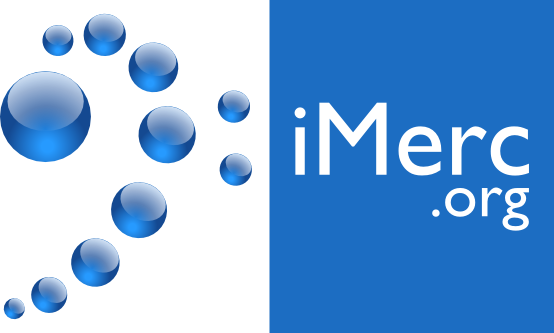
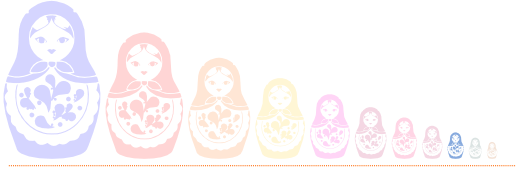
UCL iMerc Newsletter — Vol. 7, April 2024
About us
Since the Covid-19 pandemic in 2020, we have been meeting regularly to share new research and insights related to diverse topics in music education, broadly conceived. We are a group of researchers at doctoral and post-doctoral levels, as well as senior researchers, with a shared curiosity and interest in advancing basic and applied research. Our monthly seminars are also designed to foster a sense of community amongst colleagues who are mainly based in the UK, mainland Europe (such as Portugal, Germany, Greece), Asia (China, including Hong Kong), Latin America and Australia. Opportunity is taken each month to update various current research projects and also to listen to the latest research from our invited speakers. If you would like to know more or to join us, please contact us.
Our upcoming research seminar is on Wednesday, 25th April 2024, 11am BST. It will be held on Zoom and in either room 943 or room 938 at the IOE. We are very happy to have our colleagues Kate Laurence and Zeinab El-Khateeb speak to us. Please join us by clicking the Zoom link HERE. Everyone is welcome!
In This Issue

Dr Jo Saunders
Previous iMerc Research Seminar, March 2024
Music Video: Veyilodu Vilaiyadi by The Harmony Chorus
Recording: Cathedral Opera 'The Bruce'
Newly Published: Rhythm and Reading: Connecting the Training of Musical Rhythm to the Development of Literacy Skills
Recently published: Musical and cognitive abilities in children from disadvantaged backgrounds
Recently Published: Music, drama, and social development in Portuguese children
Event: Narrative Inquiry & New-York Cheese Cake
iMerc Research Seminar, April 2024
In Conversation with Dr Rebecca Moseley-Morgan
Upcoming Research Seminar
Contact us
Dr Jo Saunders
After being a key member of the music education team for the past two decades, this Easter 2024 Dr Jo Saunders has recently left her full-time lecturer post at the Insitute of Education in London to get married and to live in Boston, USA. We wish her every success in this new phase of her life and we shall miss her very much!
Jo joined the IoE in 2002 as a sponsored ESRC PhD student, having already successfully completed her MPhil at the University of Cambridge. Jo was an outstanding doctoral student and subsequently passed her PhD with flying colours in 2008. Her focus was on pupils' musical engagement in the Secondary school music classroom with research that drew on her own teaching in the East of England. This personal research study was followed by employment (initially part-time, then full-time) as a Research Officer on a series of externally funded major projects that investigated children and young people's musical behaviours and development, including studies of singing and instrumental learning, as well as the potential wider benefits of music education. During this period, Jo's recognised expertise in music education led her to begin teaching on the MA in Music Education and, subsequently, to become a full-time lecturer with her own doctoral students. Jo's contribution to the development, success and high status of music education at the IoE has been immense, as many of our current and former students, as well as colleagues, will testify. Jo will continue teaching in a part-time distance role for the rest of this academic year to ensure that her current students complete their studies successfully. Whatever happens subsequently, Jo will always be a part of the team and welcome to visit and contribute at any time!
Previous iMerc Research Seminar, March 2024
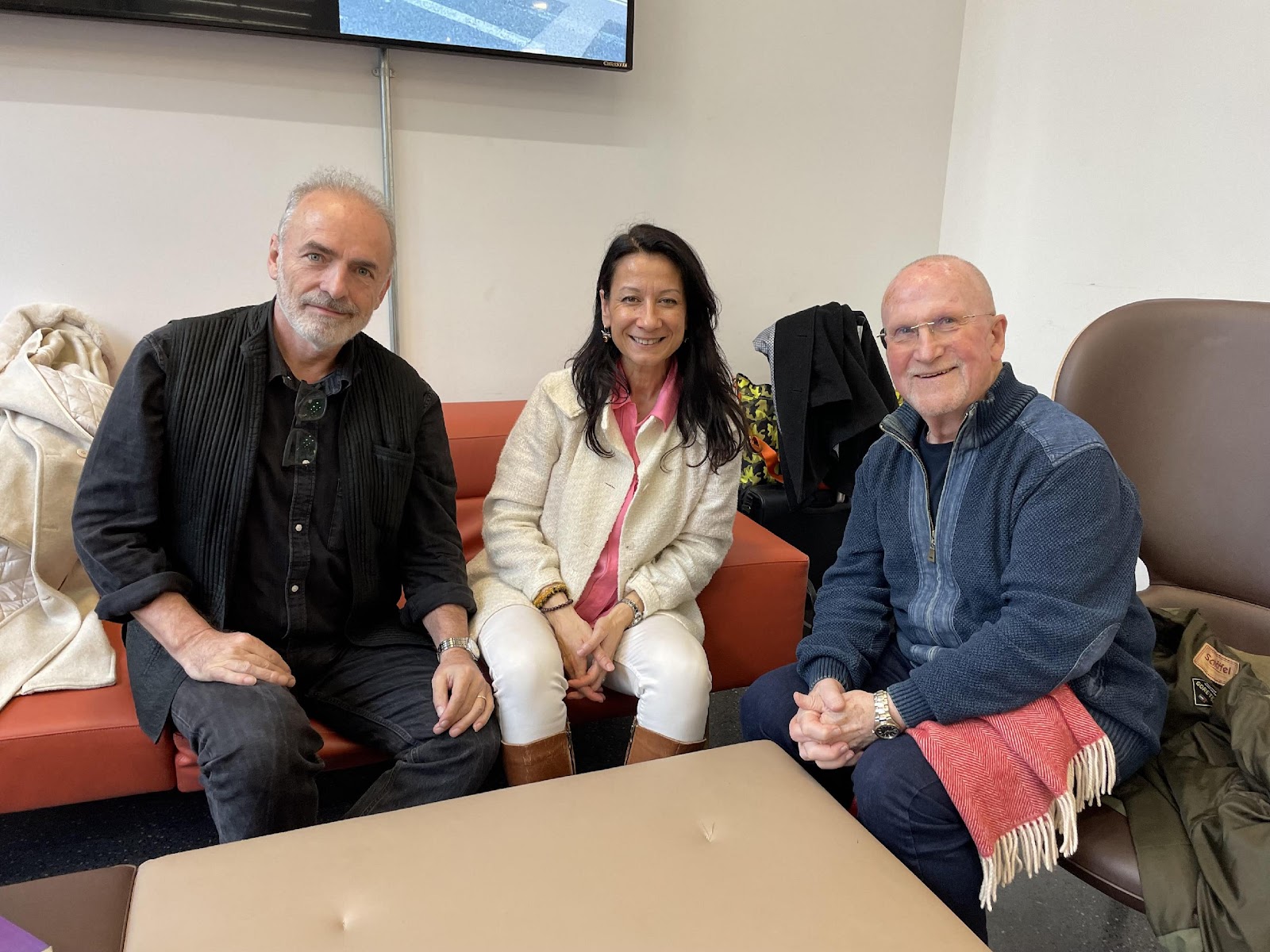
1 - Professor Huib Schippers, Dr Olcay Schippers and Professor Graham Welch at the IOE on the day of the seminar.
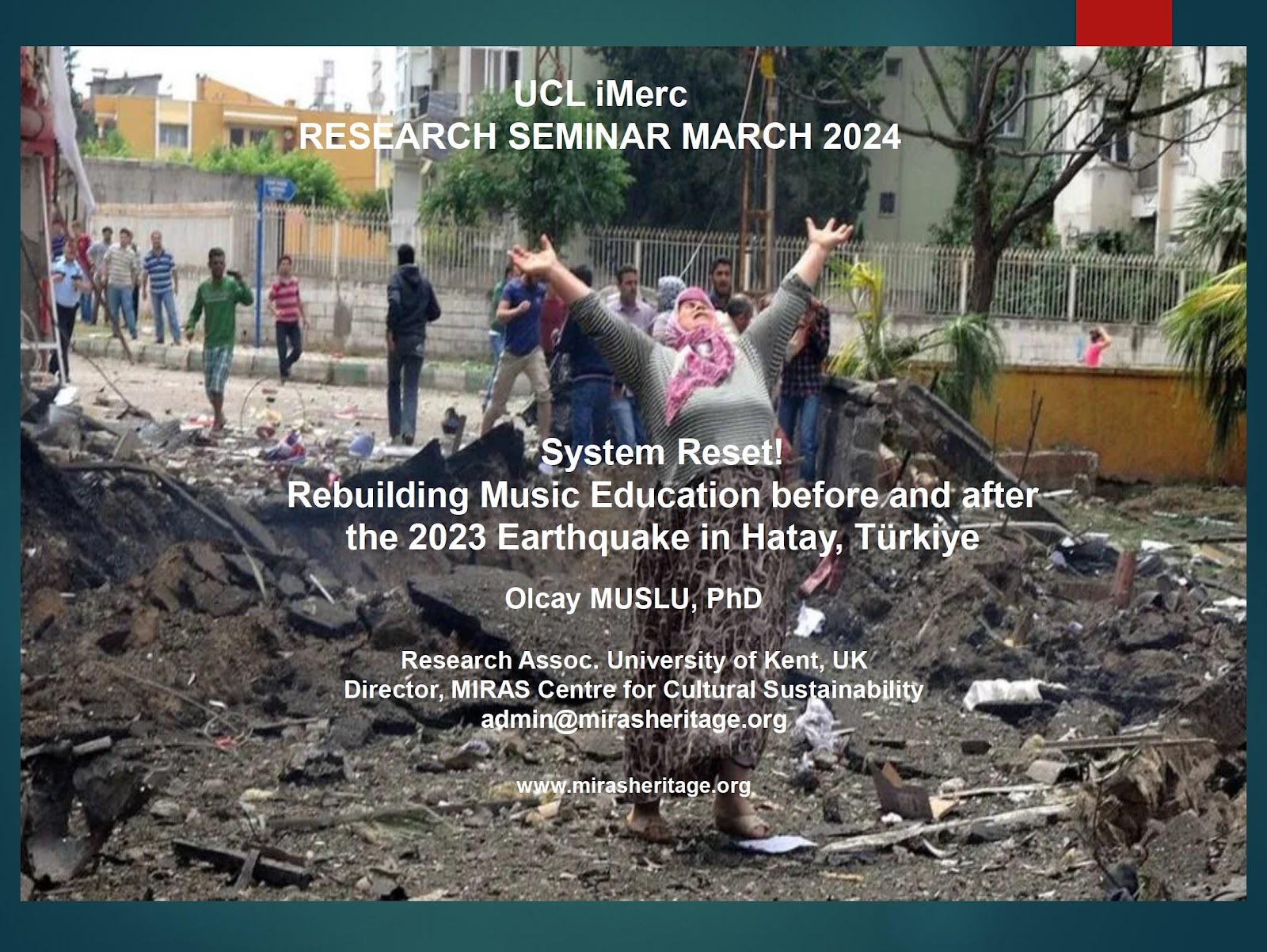
2 - Presentation cover slide presented by Dr Olcay Muslu-Schippers
Dr Olcay Muslu (O.Muslu-Schippers@kent.ac.uk) shared her vision and recent projects on rebuilding a sense of well-being, community and connection to place after the earthquake hit Hatay, Turkey, in February 2023. In this presentation, System Reset! Rebuilding Music Education Before and After the Earthquake in Hatay, Türkiye, Olcay guided us through understanding the system of music education in Türkiye, the effect on higher education after the 6th February earthquake, which includes universities switched back to distance learning in the earthquake zone, students were transferred to other provinces, adjustments in assessment and in attendance in the conservatory. how she set up an infrastructure that can help the survivors. She highlighted the importance of going back to the basics of what music is and means to the community and created a model of musical sustainability in Türkiye. Olcay also set up the NGO MIRAS Centre for Cultural Sustainability, in which she contributes to delivering classes, offering workshops, supporting musicians, and enabling industry professionals to “rebuild beyond bricks” in the city. Please read more about Olcay's work on the MiRAS website HERE.
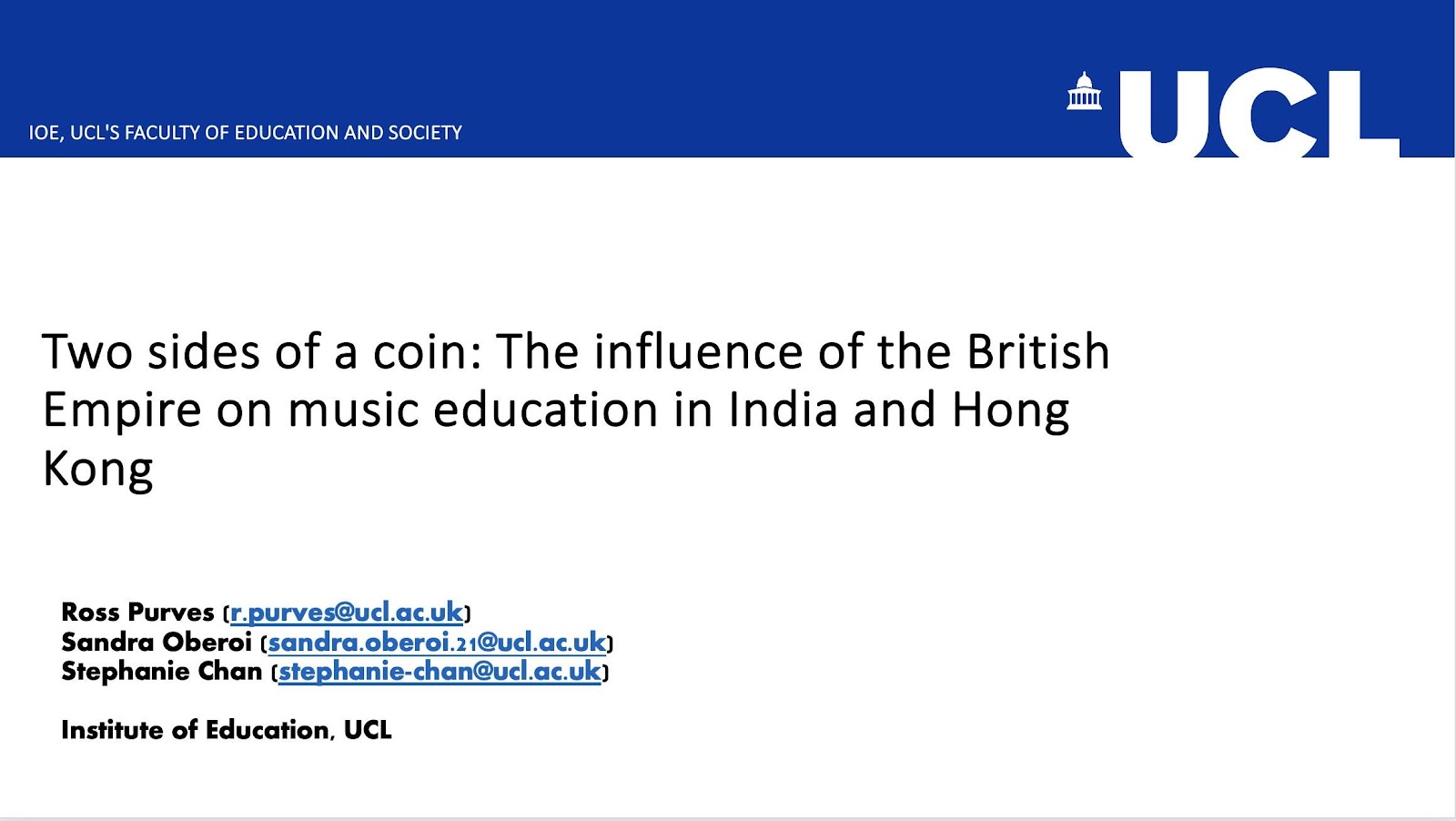
3 - Presentation cover slide presented by Dr Ross Purves, Sandra Oberoi and Stephanie Hoi-Ying Chan
Dr Ross Purves (r.purves@ucl.ac.uk), Sandra Oberoi (sandra@harmonybangalore.com), and Stephanie Chan (stephanie-chan@ucl.ac.uk) shared their recent project on British colonisation. The presentation was titled, Two sides of a coin: The influence of the British Empire on music education in India and Hong Kong. In this presentation, Ross, Sandra and Stephanie shared their insights on the development of present music education in India and Hong Kong from a historical perspective and the subsequent impacts of British colonisation on music with documentary analysis. This presentation argues that the impacts of British colonisation in India and Hong Kong do not happen only during colonisation but also in the present time.
Music Video: Veyilodu Vilaiyadi by The Harmony Chorus
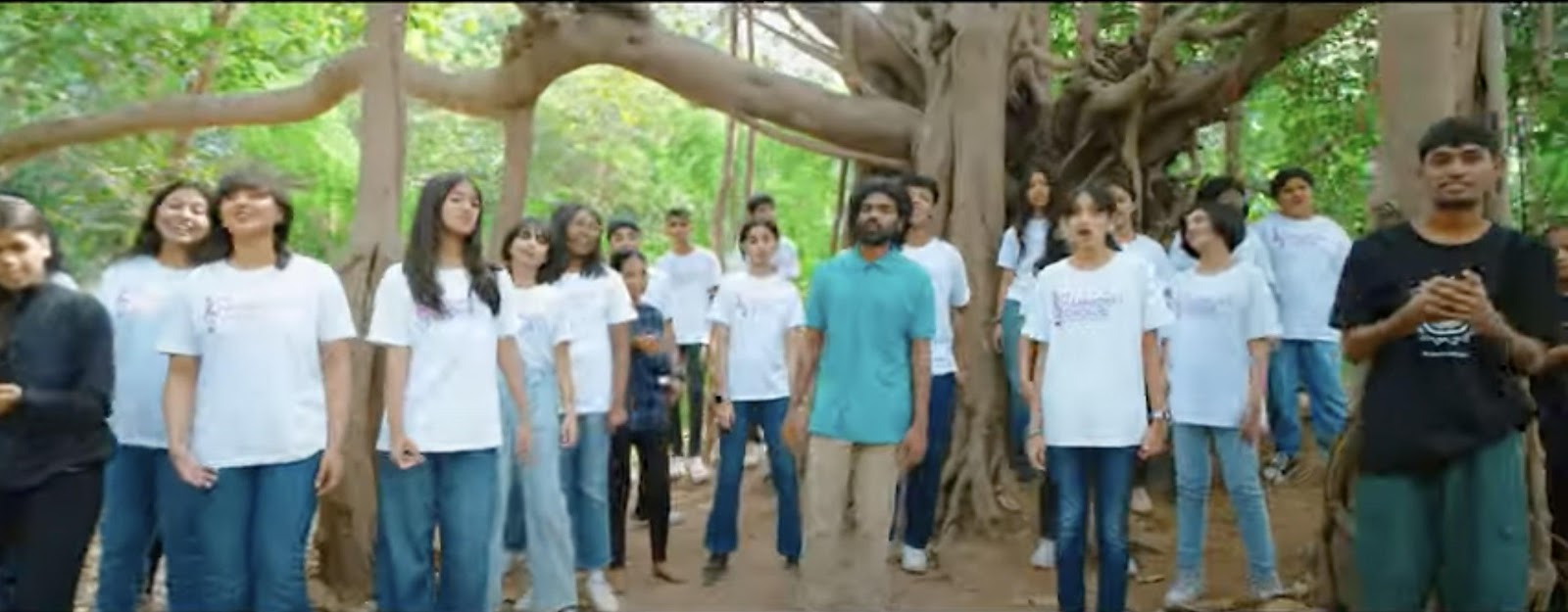
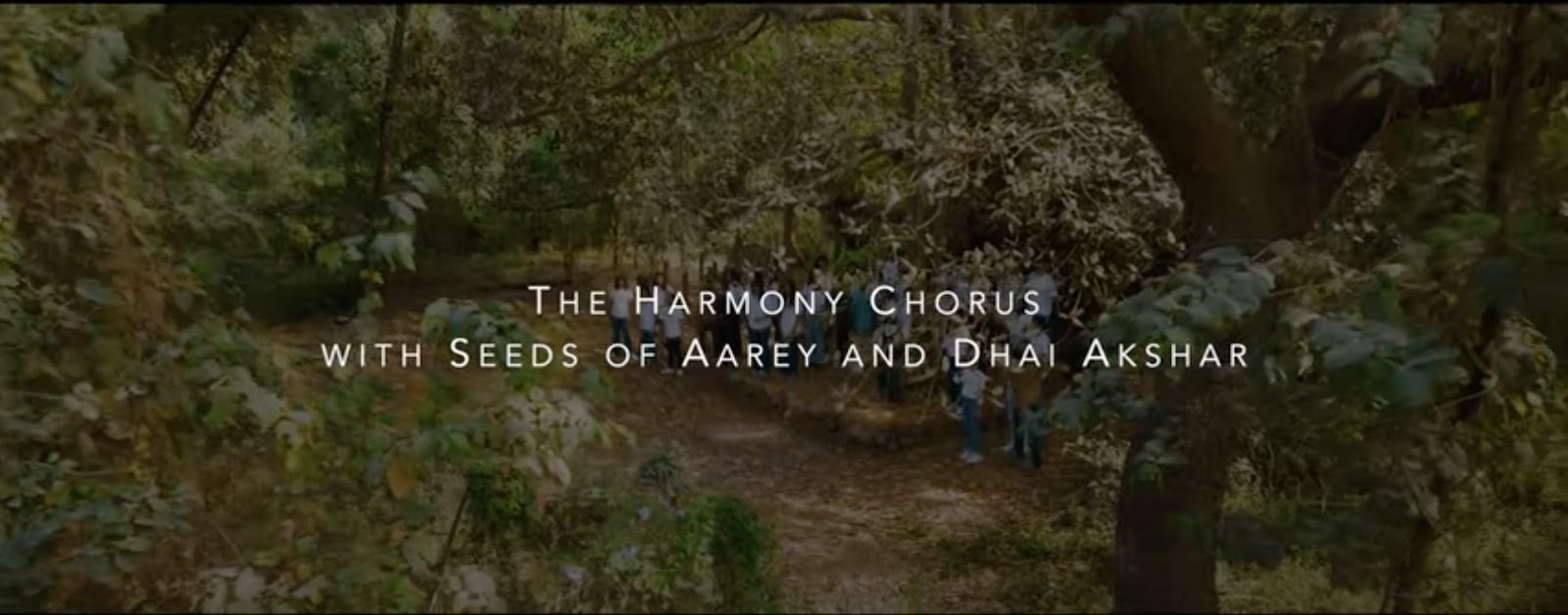
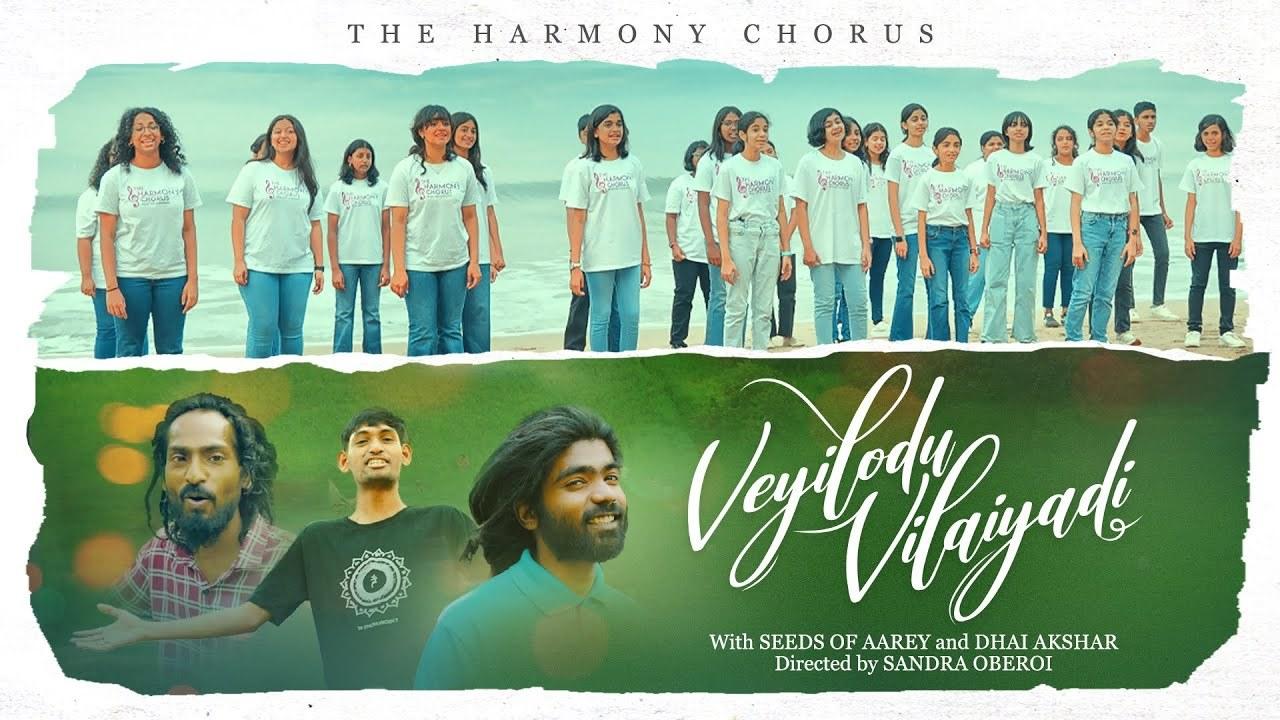
Read Sandra's words:
Our latest music video with The Harmony Chorus, which I arranged and directed, is OUT NOW! We hope you enjoy our cover of this Tamil folksong with the addition of harmonies, original rap and konnakol! This is a project so close to our hearts as we join our young friends in advocating for a green and clean Aarey forest, known as the lungs of Mumbai. Please listen when you have a few moments. Thank you.
Watch the video: https://youtu.be/AILNF0wjFY0?si=2QtlL8ZVdyjvqKZZ
Contact: Sandra Oberoi (sandra@harmonybangalore.com)
Recording: Cathedral Opera 'The Bruce'
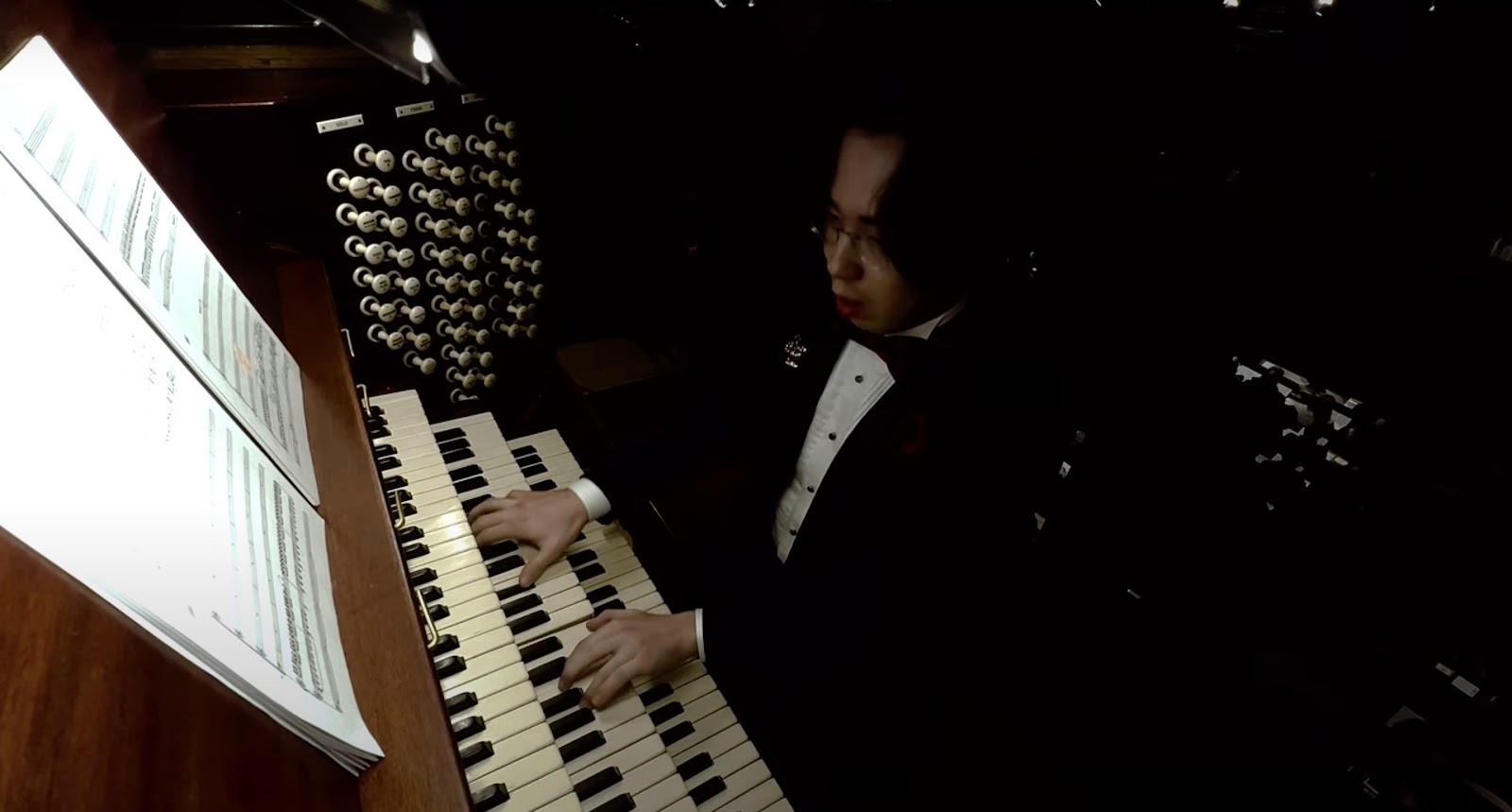
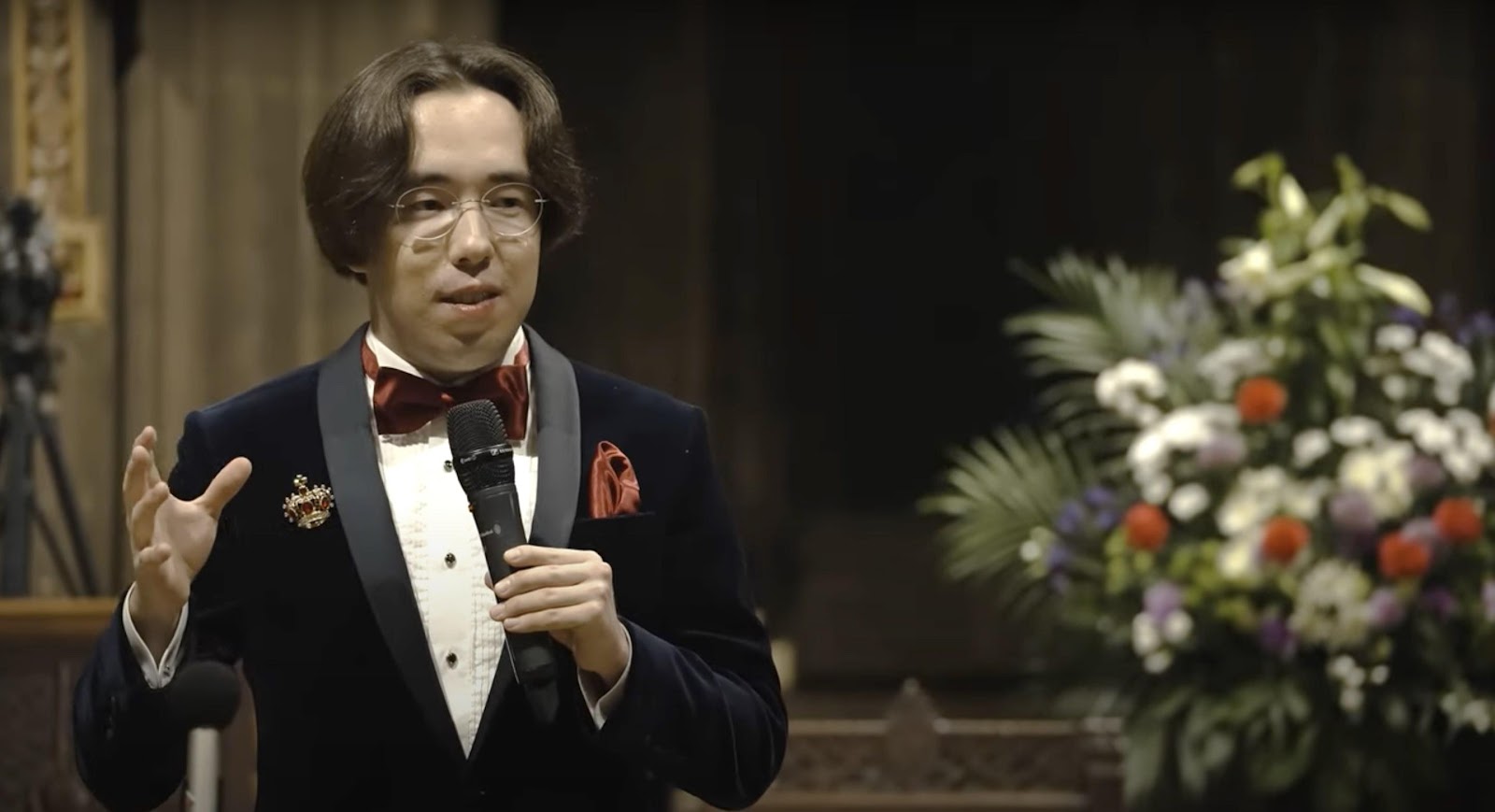
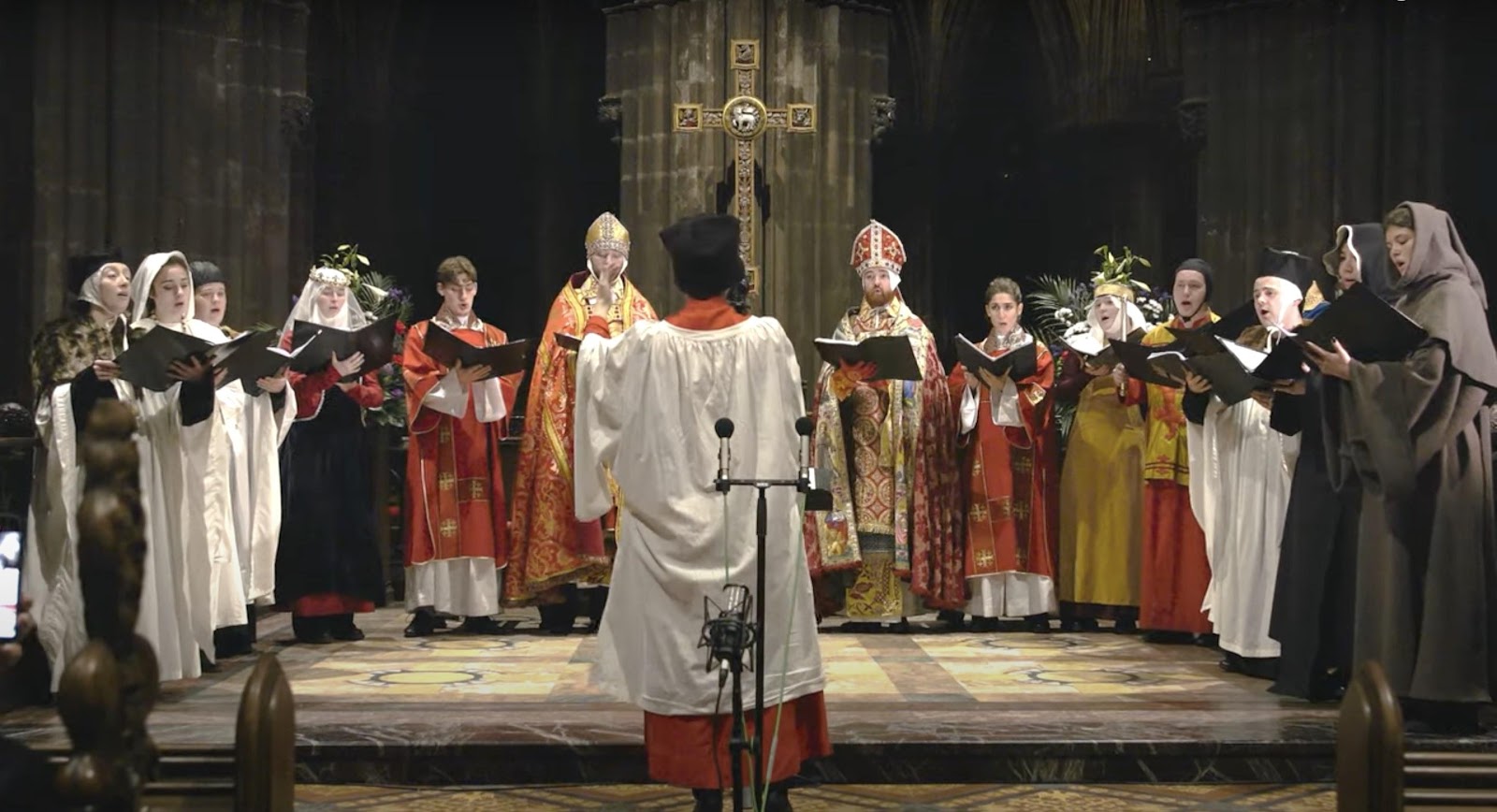
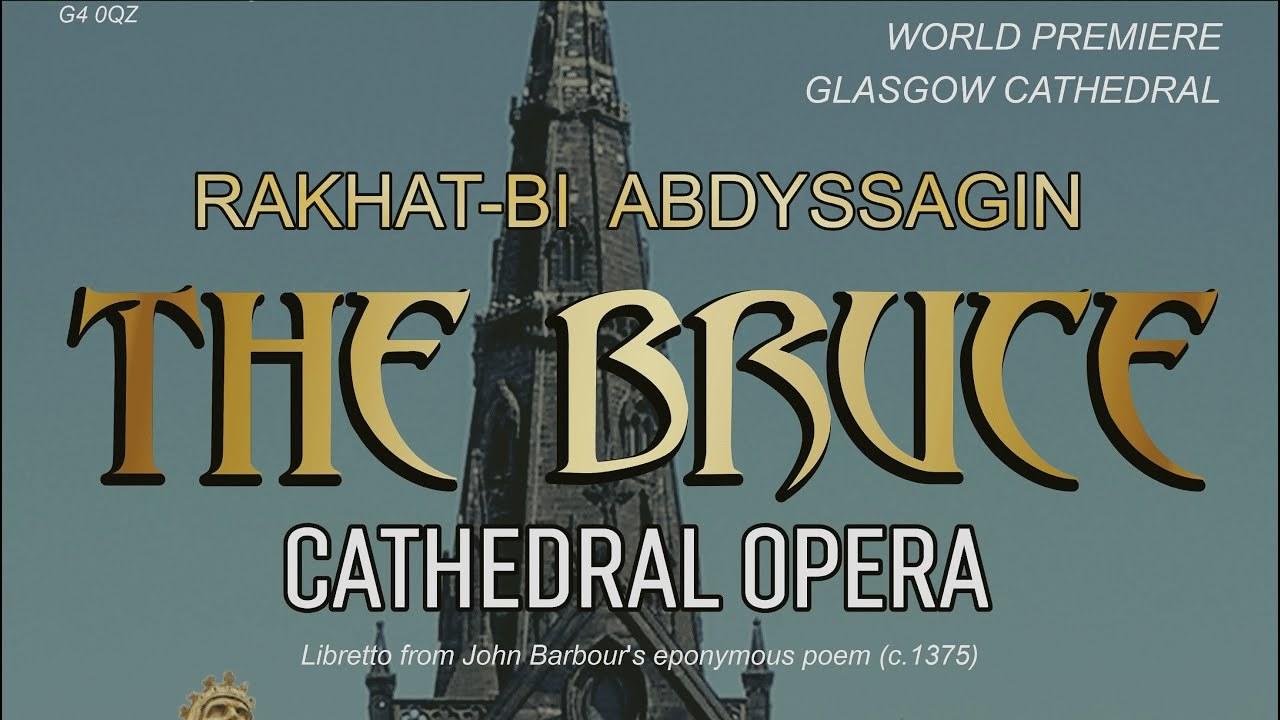
Rakhat-Bi Abdyssagin, Cathedral Opera 'The Bruce' (2023), World Premiere, Glasgow 17.02.2024
Watch Rakhat-Bi's Opera: https://www.youtube.com/watch?v=FlcNqugIoh0
Contact: Rakhat-Bi Abdyssagin: rahatbiabd@mail.ru
Newly Published: Rhythm and Reading: Connecting the Training of Musical Rhythm to the Development of Literacy Skills
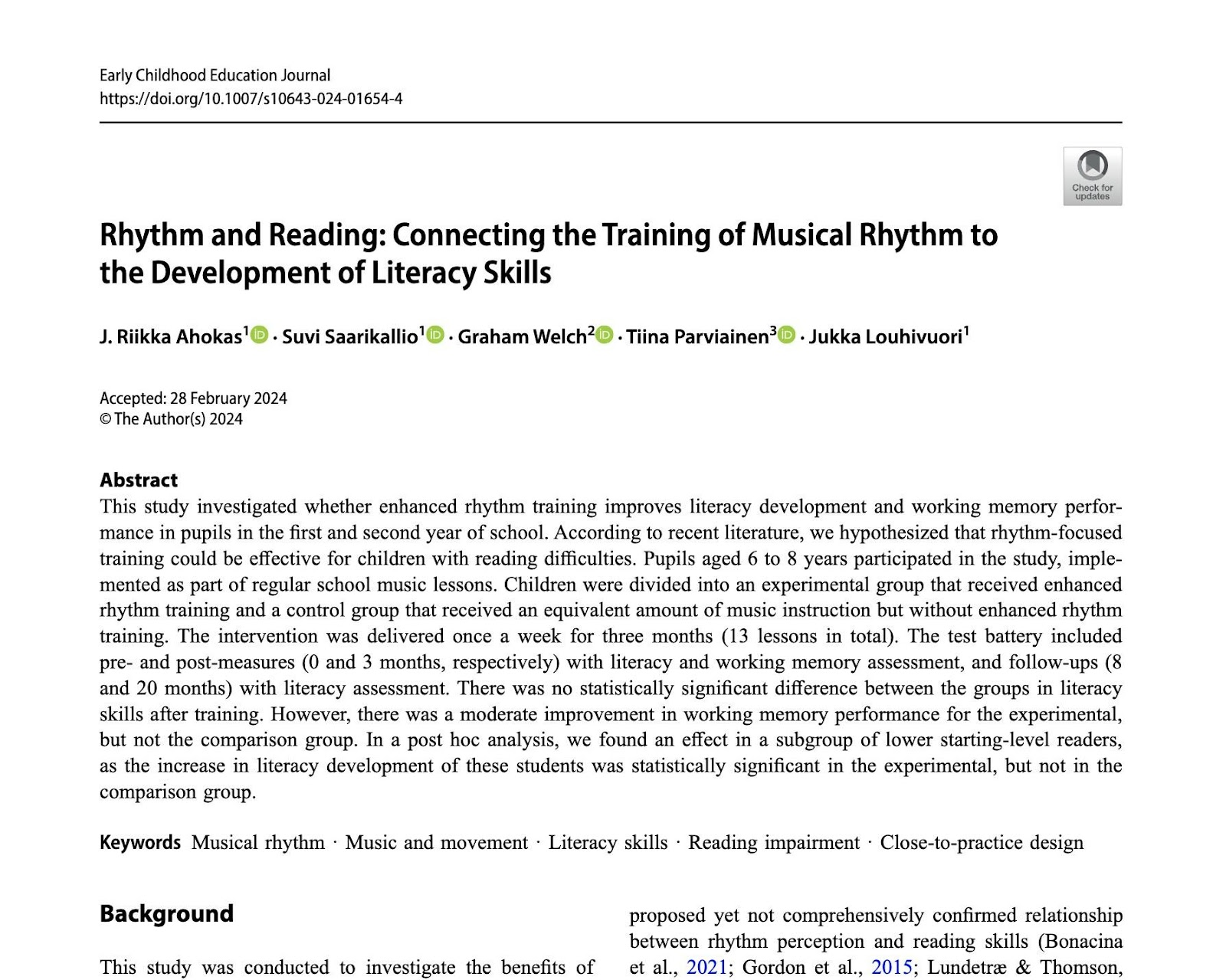
Authors: J.Riikka Ahokas, Suvi Saarikallio, Graham Welch, Tinna Parviainen & Jukka Louhivuori
Abstract: This study investigated whether enhanced rhythm training improves literacy development and working memory performance in pupils in the first and second year of school. According to recent literature, we hypothesized that rhythm-focused training could be effective for children with reading difficulties. Pupils aged 6 to 8 years participated in the study, implemented as part of regular school music lessons. Children were divided into an experimental group that received enhanced rhythm training and a control group that received an equivalent amount of music instruction but without enhanced rhythm training. The intervention was delivered once a week for three months (13 lessons in total). The test battery included pre- and post-measures (0 and 3 months, respectively) with literacy and working memory assessment, and follow-ups (8 and 20 months) with literacy assessment. There was no statistically significant difference between the groups in literacy skills after training. However, there was a moderate improvement in working memory performance for the experimental, but not the comparison group. In a post hoc analysis, we found an effect in a subgroup of lower starting-level readers, as the increase in literacy development of these students was statistically significant in the experimental, but not in the comparison group.
Reference: Ahokas, J.R., Saarikallio, S., Welch, G., Parviainen, T., & Louhivouri, J. (2024). Rhythm and Reading: Connecting the Training of Musical Rhythm to the Development of Literacy Skills. Early Childhood Education Journal. https://doi.org/10.1007/s10643-024-01654-4
Contact: J. Riikka Ahokas (j.riikka.ahokas@jyu.fi)
Recently published: Musical and cognitive abilities in children from disadvantaged backgrounds
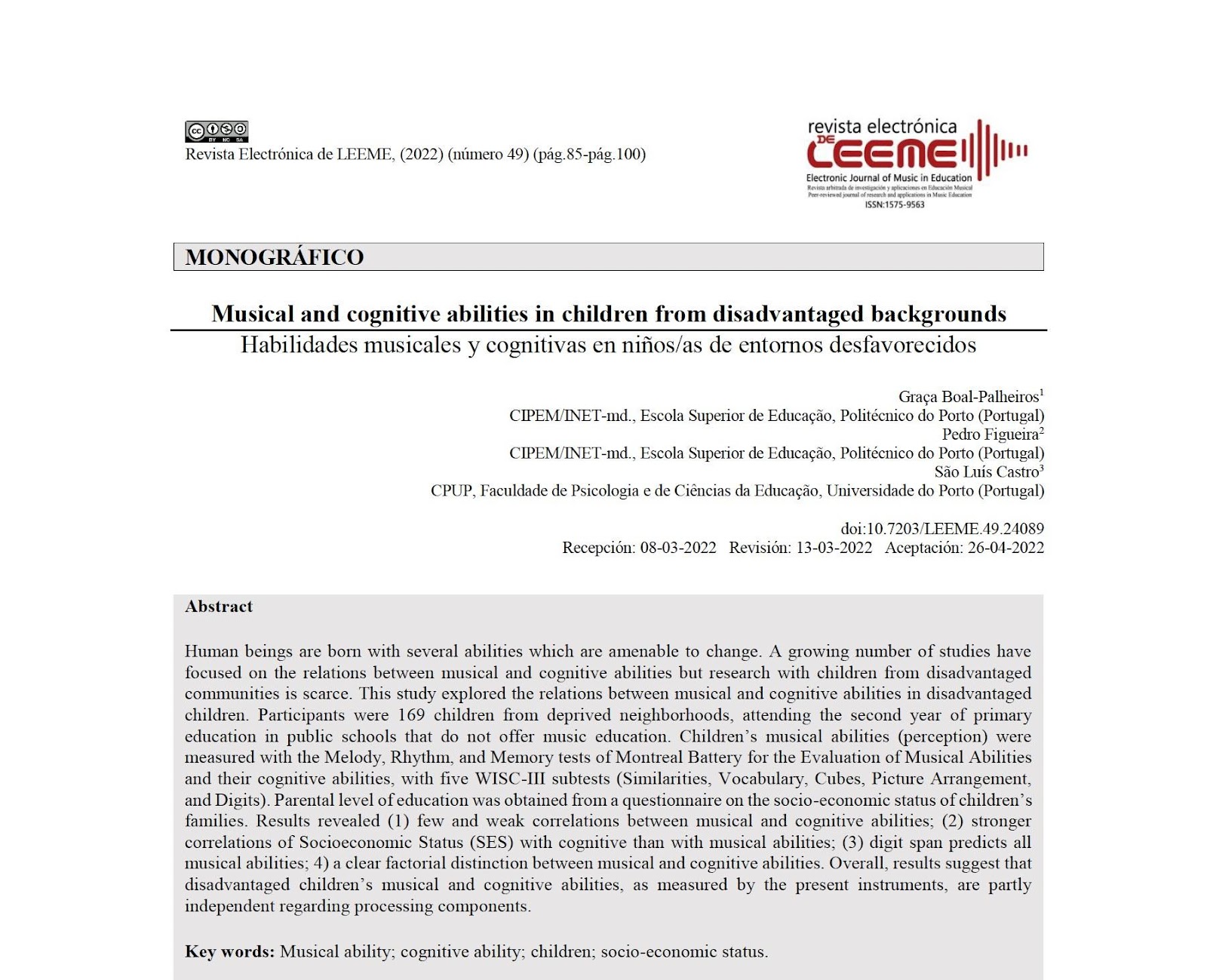
Authors: Graça Boal Palheiros, Pedro Figueira, São Luís Castro
Abstract: Human beings are born with several abilities which are amenable to change. A growing number of studies have focused on the relations between musical and cognitive abilities but research with children from disadvantaged communities is scarce. This study explored the relations between musical and cognitive abilities in disadvantaged children. Participants were 169 children from deprived neighborhoods, attending the second year of primary education in public schools that do not offer music education. Children’s musical abilities (perception) were measured with the Melody, Rhythm, and Memory tests of Montreal Battery for the Evaluation of Musical Abilities and their cognitive abilities, with five WISC-III subtests (Similarities, Vocabulary, Cubes, Picture Arrangement, and Digits). Parental level of education was obtained from a questionnaire on the socio-economic status of children’s families. Results revealed (1) few and weak correlations between musical and cognitive abilities; (2) stronger correlations of Socioeconomic Status (SES) with cognitive than with musical abilities; (3) digit span predicts all musical abilities; 4) a clear factorial distinction between musical and cognitive abilities. Overall, results suggest that disadvantaged children’s musical and cognitive abilities, as measured by the present instruments, are partly independent regarding processing components.
Reference: Boal-Palheiros, G., Figueira, P., & Castro, S. L. (2022). Musical and cognitive abilities in children from disadvantaged backgrounds. Revista Electrónica de LEEME, 49, 85-100. https://doi.org/10.7203/LEEME.49.24089
Contact: Professor Graça Boal Palheiros (gbpalheiros@ese.ipp.pt)
Recently published: Music, drama, and social development in Portuguese children
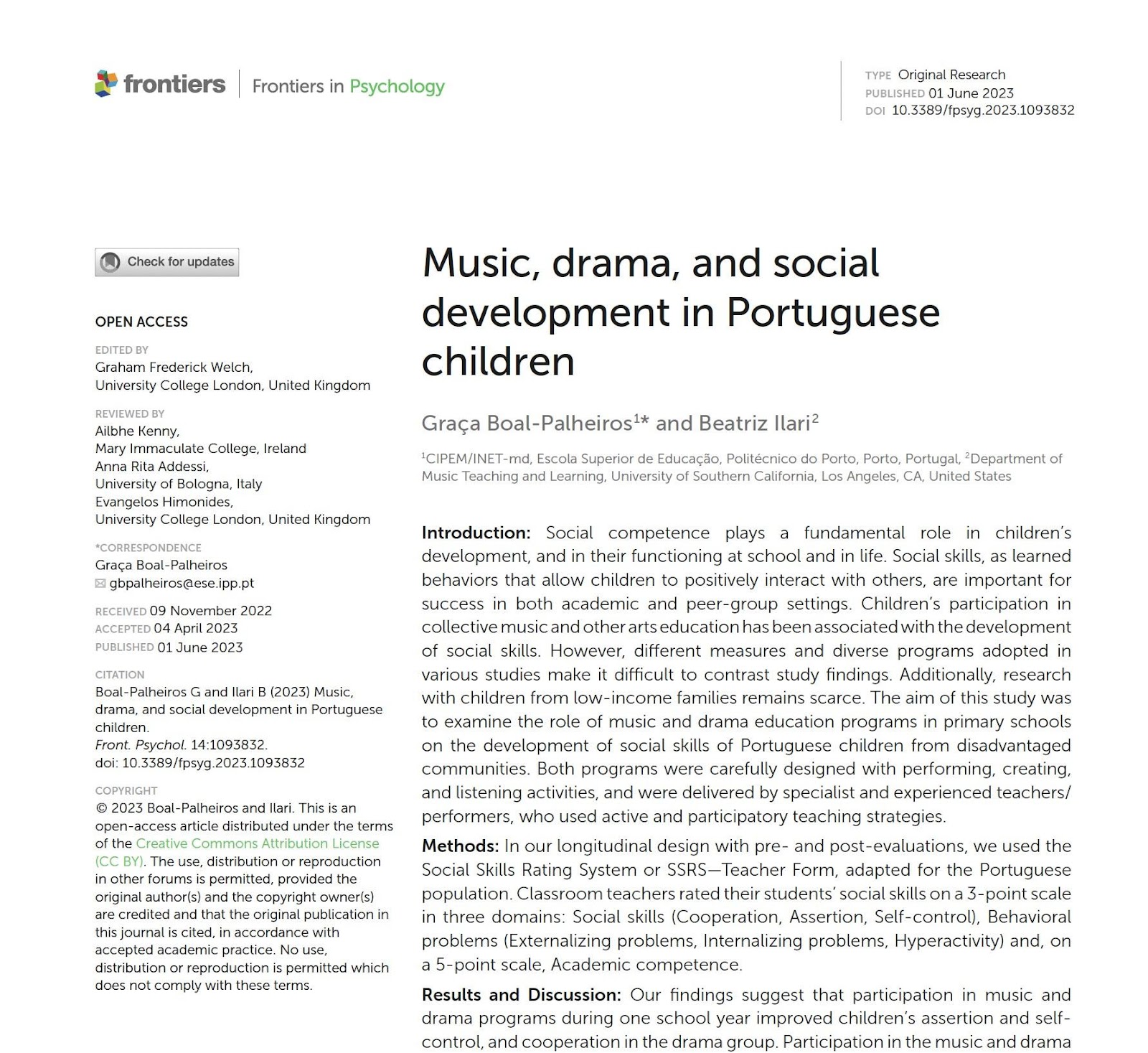
Authors: Graça Boal Palheiros, Beatriz Ilari
Introduction: Social competence plays a fundamental role in children’s development, and in their functioning at school and in life. Social skills, as learned behaviors that allow children to positively interact with others, are important for success in both academic and peer-group settings. Children’s participation in collective music and other arts education has been associated with the development of social skills. However, different measures and diverse programs adopted in various studies make it difficult to contrast study findings. Additionally, research with children from low-income families remains scarce. The aim of this study was to examine the role of music and drama education programs in primary schools on the development of social skills of Portuguese children from disadvantaged communities. Both programs were carefully designed with performing, creating, and listening activities, and were delivered by specialist and experienced teachers/performers, who used active and participatory teaching strategies.
Reference: Boal-Palheiros, G., & Ilari, B. (2023). Music, drama, and social development in Portuguese children. Frontiers in Psychology, 14, 1093832. https://doi.org/10.3389/fpsyg.2023.1093832
Contact: Professor Graça Boal Palheiros (gbpalheiros@ese.ipp.pt)
Event: Narrative Inquiry & New-York Cheesecake
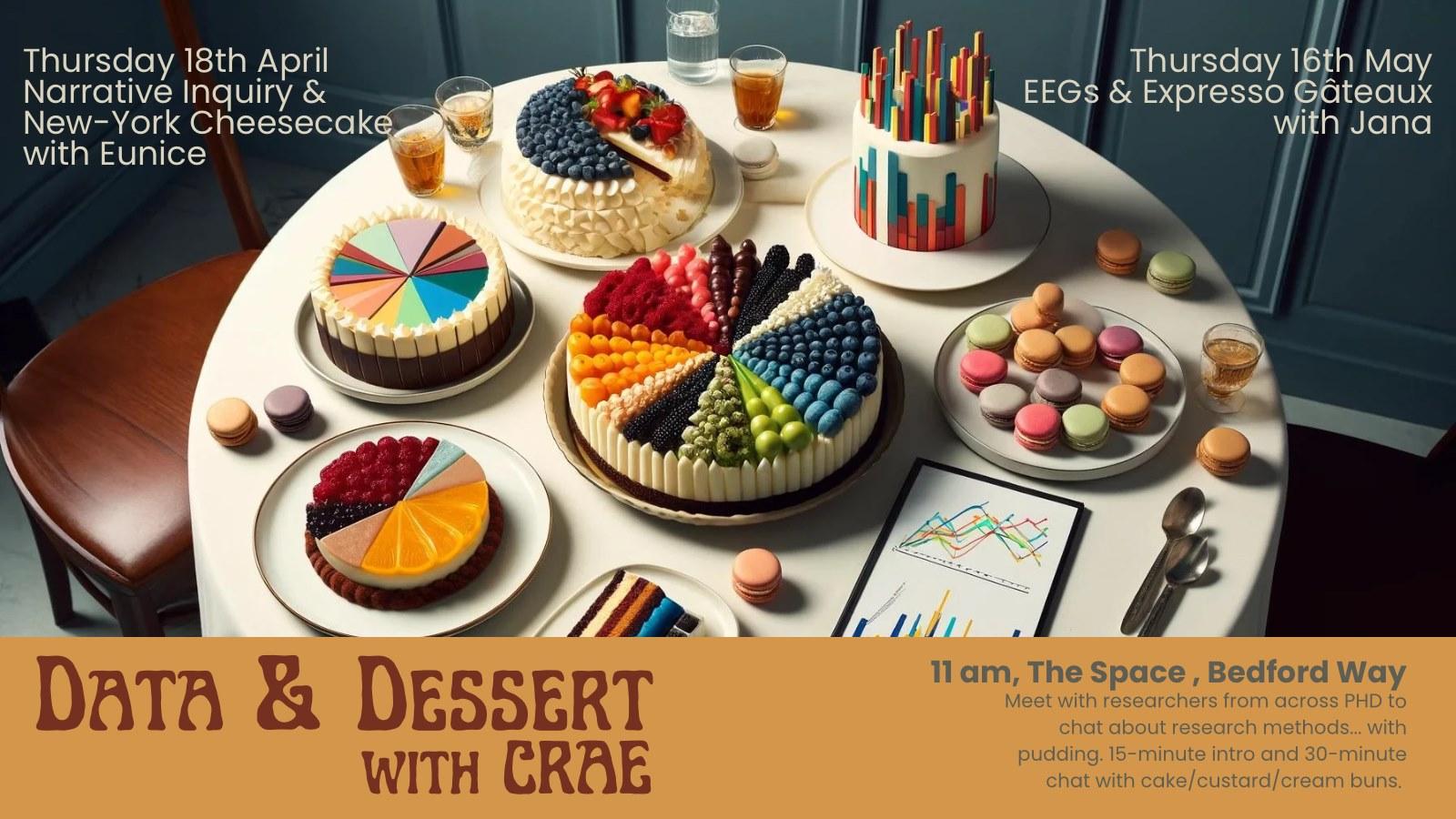
Read Eunice's words:
Thanks for the invitation from Dr Brian Irvine, a wonderful colleague at the Centre for Research in Autism and Education (CRAE). I'll be sharing the gist of narrative inquiry I've learnt so far with some hands-on activities, plus a delicious New-York cheesecake! Feel free to drop by with a cup of tea or coffee, meet me and other colleagues there, enjoy the cake and more!
Data & Dessert with CRAE presents
Narrative Inquiry & New-York Cheese Cake with Eunice Tang
Thursday 18th April
11 am, The Space
Level 4, Core B, IOE
Contact: Eunice Tang (eunice.tang@ucl.ac.uk)
iMerc Research Seminar, April 2024
Speaker: Kate Laurence
Topic: A narrative study of veteran classroom music teachers’ professional learning
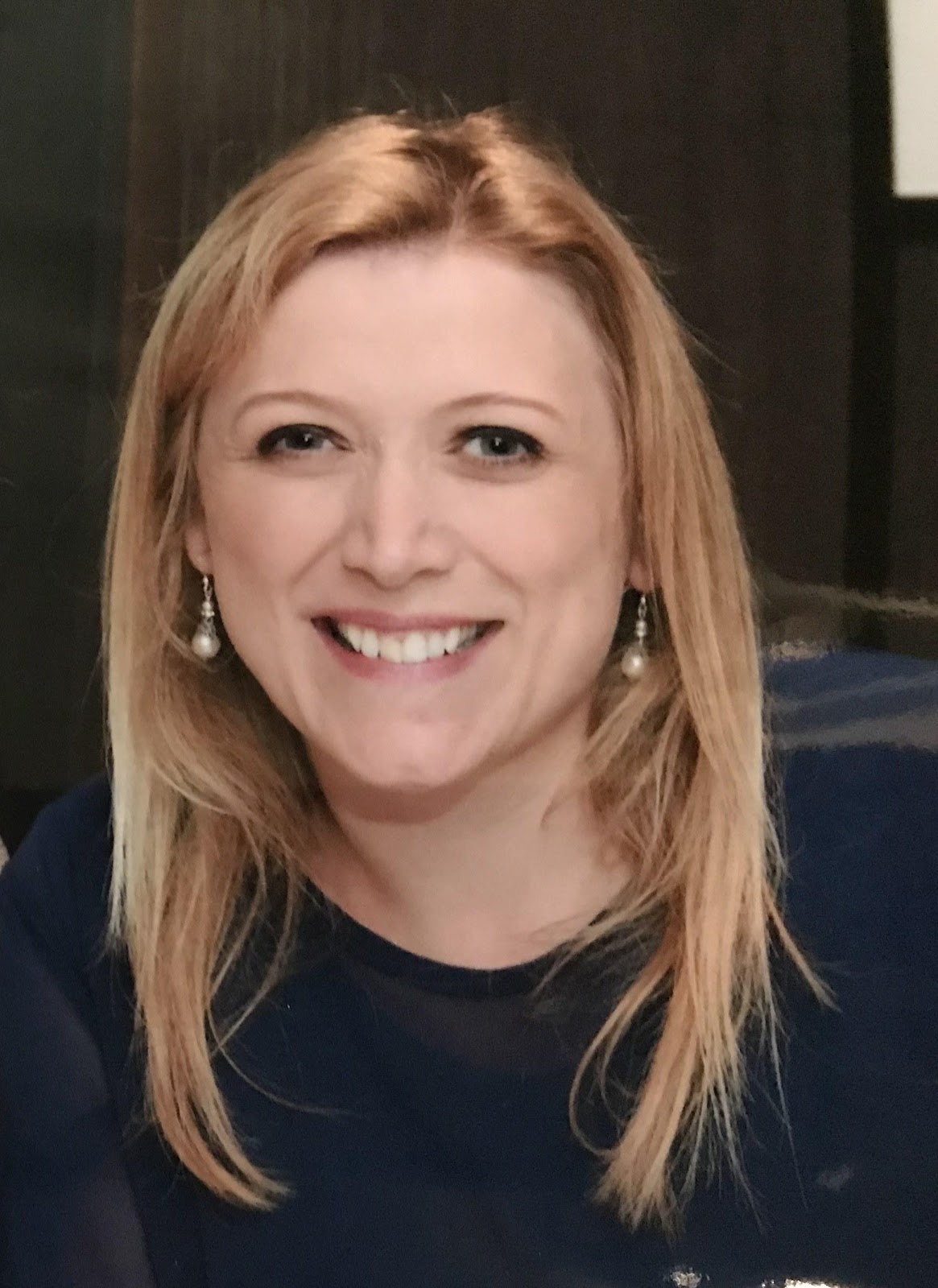
4 - Speaker: Kate Laurence
Speaker: Kate Laurence (k.laurence@ucl.ac.uk)
Kate Laurence is the Subject Course Leader for the UCL PGCE Music programme. She is responsible for the Initial Teacher Education (ITE) of classroom teachers across the secondary school age range.
Kate’s professional career has involved teaching in different contexts, including London schools, community settings and Higher Education. Prior to taking up her role at UCL, she was Director of Music at the St Marylebone School, later becoming Assistant Headteacher. During her school teaching career, Kate was awarded Advanced Skills Teacher status, a role that enabled her to support Heads of Music and develop large ensembles for young people in Local Authority secondary schools.
Kate has broader experience in leading professional learning programmes and CPD for teachers in England and Wales. She has recently worked with universities and schools in Sweden.
Kate has particular interests in narrative research, teacher professional learning, and music education. Her PhD research explores the professional learning of veteran teachers through a narrative storytelling approach.
Kate's abstract:
This study examines the professional learning of veteran school music teachers, based in English secondary schools, over the course of their careers.
The research engaged three experienced music teachers in a narrative storytelling process throughout the period of an academic year. The analyses were co-constructed as part of an iterative meaning-making process between researcher and participant. Music teacher professional learning was examined in the past and present: firstly, through stories of the participants’ teaching careers, set against the historic backdrop of changes in the education landscape and, secondly, through the narrative storytelling process itself which appeared to stimulate and provoke further critical reflection.
The research explores the three veteran music teachers’ act of storytelling to communicate and make sense of moments and events in their careers, including the way that literary devices and metaphors potentially amplified, subjugated or obscured meaning in their narratives.
The research uncovers how common narratives from the wider music teaching community, such as professional isolation and subject distinctiveness, are rehearsed by music teachers to potentially retreat from more difficult areas of their work. The emergent data reveal the serendipitous and unplanned nature of professional learning, specifically how non-formal sites of learning might offer an alternative space for music specialist teachers to stimulate and address areas of their practice.
Speaker: Zeinab El-Khateeb
Topic: The impact of a song-based approach on Early Language Development and Second Language Acquisition
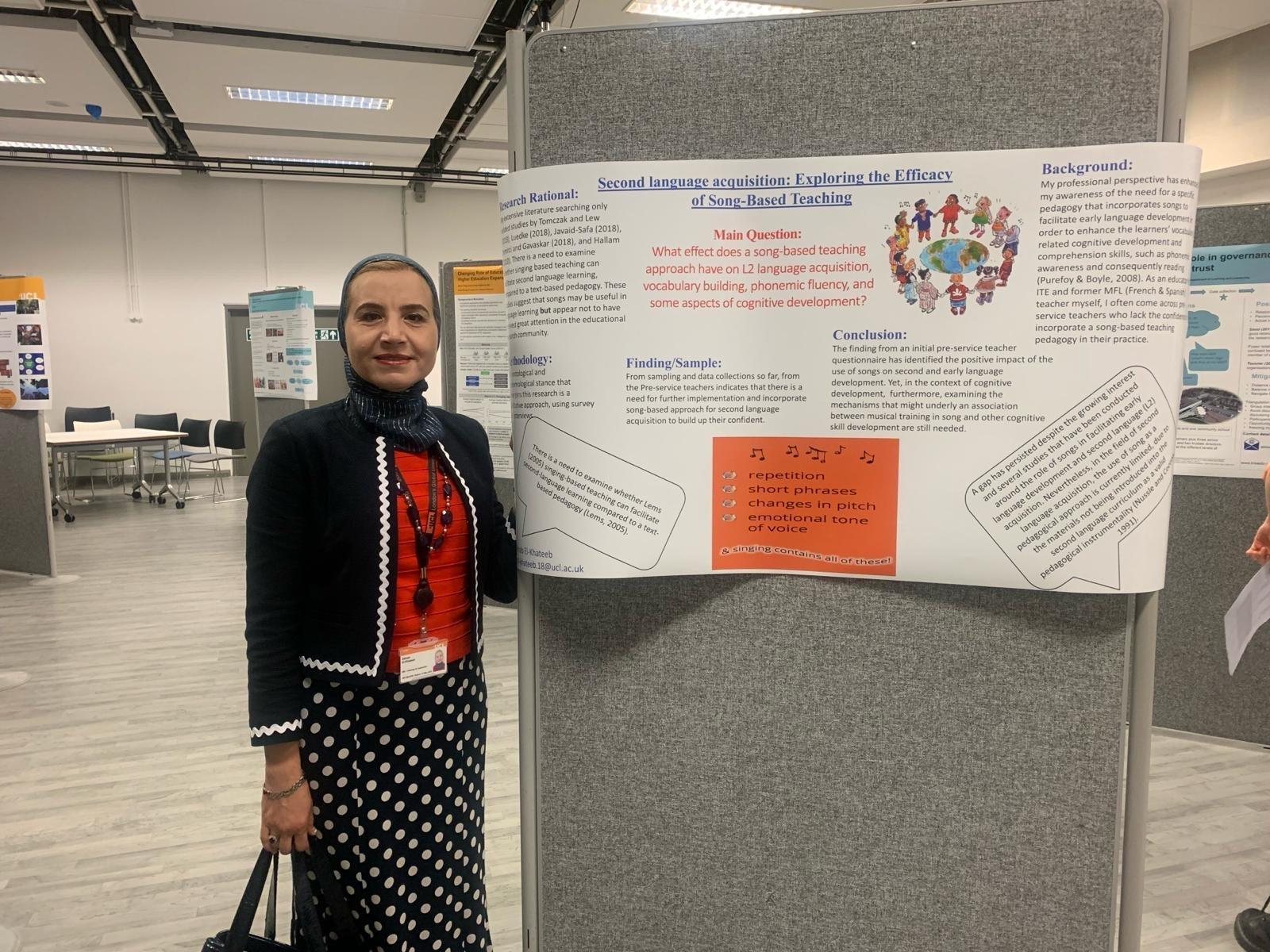
5 - Zeinab's picture of the IOE Poster Conference, 14th March 2024
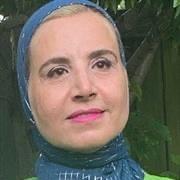
Speaker: Zeinab El-Khateeb (z.el-khateeb.18@ucl.ac.uk)
Zeinab's UCL Profile can be found HERE.
Higher education experiences
My current role is a Lecturer in Education (ITE) in the Department of Learning and Leadership. I also work as a Lecturer on the MA in Education, Department of Curriculum, Pedagogy and Assessment at the IOE, UCL. Previous to this, I have also worked at UCL as a Senior Teaching Fellow in Secondary MFL education. In addition, I was the course leader for SCITT/ PGCE secondary at Hull University, where I led and trained PGCE/ SCITT students and the whole of the secondary cohort for Hull, Yorkshire and Sheffield. In addition, I have also worked as a Lecturer in Secondary MFL education at Birmingham City University, where I teach, train, and supervise Secondary MFL students in the northeast of England. Prior to this, I worked as a Lecturer in Education and MFL (ITE) at Leeds Trinity University and London Metropolitan University. Similarly, I have worked as a Lecturer in MFL at Liverpool Hope University and Edge Hill University, as well as in Early Years, Primary, and Secondary education. I have also worked as a Lecturer on the MA in Education at Keele University.
Schools’ teaching and leading experiences
I have twenty-two years of experience leading, teaching, learning and assessing MFL in UK Secondary, Primary, sixth form, and Adult Education. In addition, I have also led the Early Years/foundation stage. I have taught core subjects in Secondary and Primary schools, such as Maths, English, and Science. I have also taught foundation subjects, such as History, Geography, RE, and Citizenship education.
Zeinab's abstract:
Much existing evidence has highlighted the potential benefits of the use of songs in early language development. However, to date, there has been no study which systematically explores the relationship between song-based learning in the context of second language acquisition (e.g., Ludke, 2014; Engh, 2013b; Conrad, 1991; Kanel, 1997; Lems, 2005). Therefore, this study aims to examine the current claim that songs are useful tools for learning a second language, although preliminary research suggests that teachers often see themselves as very busy and do not understand why a song-based EAL approach might be fruitful, nor undertake any follow-up assessment. This echoes Nuessel and Cicogna (1991) who stated that “whenever material is introduced into the second language curriculum, this subject matter must be tested to assess its worth as a valid pedagogical instrument" (p. 481). In addition, the need for the research also echoes comments in Early Years Education (2018) such as that there is a lack of understanding of the theoretical underpinnings and methodology to support such teaching pedagogy; there is a need for reform within curricula to provide teachers with critical skills, such as incorporating the use of songs within their teaching practice. At present, there is a lack of training and a lack of resources for the use of songs, and there is not any statutory requirement for such singing in the EYFS curriculum.
In Conversation with Dr Rebecca Moseley-Morgan
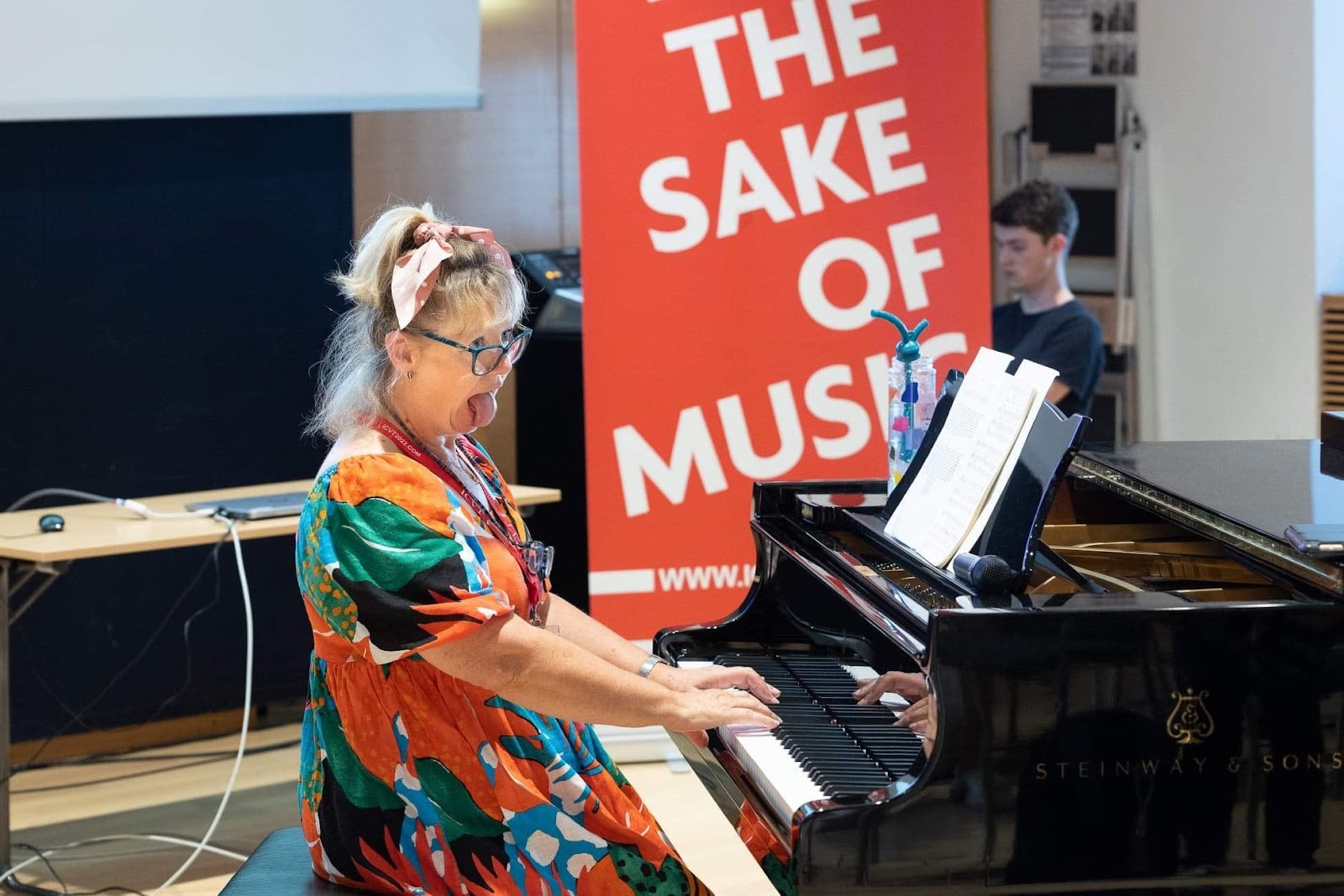
6 - Dr Rebecca Moseley-Morgan speaking at a conference about her work.
Dr Rebecca Moseley-Morgan recently passed her PhD viva at UCL. Her research investigates what interventions can maintain the functionality of the mature female voice. Here is the conversation with Becky about her doctoral experience.
1. Congratulations on passing your viva, Becky. I'm so happy for you. Can you tell us a bit more about yourself?
Yes, okay, so where to start. We could be here sometime because I'm very old now. Basically, I've always loved learning. I've been a lifetime learner. I loved school, which I guess is quite unusual these days, but for me, music and learning all started there. There was church music at school. So then, when I left school, I went to the Royal College of Music to study to be a singer, and my school was disappointed with me, which I think was often the thing that made me want to do more studying later in life. I think that the seed that they planted was still there. So anyway, I left school, went to the Royal College of Music, and studied there for six years, doing sort of undergraduate music stuff. Then, I was in an opera school for two years, and when I left, I went straight into working as an opera singer, mainly with touring companies like Opera 80, Glyndebourne, and Welsh National Opera. For a good fifteen years, I was working and travelling around, and—while I was working as an opera singer—I found a lot of the time.... once you're on the road, I got quite bored. So, this started my academic journey because I went to the Open University and did a BA in Arts. It was a modular degree that included music, literature, and history, just simply for fun because I needed something to do. Because when you're travelling around the country singing, if they don't need you to rehearse, you have a whole daytime until you do the show in the evening. And so it gets quite tedious. After that, I had my family, and this was really where my PhD study began because one of my children was seriously ill, and we'd lived in a hospital for 2 years, and then I took him home. He was very, very vulnerable to infection. So we had to basically live in a bubble, so that he was 3 years old, and his younger brother was one year old, and we were living at home in isolation.
And I needed something to occupy my brain. I wanted to get back to teaching, which I'd already started while I was pregnant. But I couldn't teach other children because children inevitably have all sorts of bugs and germs all the time. So I started teaching older adults and mainly women, and a lot of them were university professors, teachers, intelligent people, and they completely understood that they couldn't come in my house if they had a cold or anything like that, but at the same time, they also understood if I had a medical emergency with my eldest son, that they would be fine about that. So, we started working together with this strange kind of symbiotic relationship. I loved them coming because it was respite for me from caring for a very sick child, and they wanted to come to me because I was doing something with the voice that nobody else was doing, and at the time I didn't quite know what. But then, as my son started to get better, I started to think more clearly. I realised that I was onto something and started to look around to see; well, what happens with the ageing voice? What are people saying about it, and what should happen, and comparing that with what I was seeing. And so I began to see that the picture painted by the scientists was a little bit gloomy. And that there actually was very, very little research.
Apart from what happened in menopause, there really wasn't very much research there. It was basically voice scientists carrying out research with their colleagues, many of whom were male and were never singers. That was sort of what planted the research seed. And because I worked with a lot of university professors, they started telling me, ‘Well, Becky, you've got to research this for yourself.’ So I started this long journey of learning more about the voice and understanding the anatomy and physiology of the voice with courses largely through the British Voice Association. I worked with Mr. Declan Costello, the ENT surgeon. He taught me anatomy, just all sorts of people until eventually I kind of felt, ‘well, I'm ready to do a Master's’. It was difficult to find a university that would offer me what I wanted to do. I went back to the Open University, where I did my Master’s in musicology, and they allowed me to use the dissertation module to do the pilot study for my PhD. Because, prior to making that decision about what my dissertation should be about, I had met Graham, so I knew I was going to go on and do a PhD. And then the Open University were really good about allowing me, we decided we were going to look at the voice from the perspective of an organologist, which is the branch of musicology where you investigate the structure and components of a musical instrument, and how they function. So, that became my Master's dissertation working with Graham. So, it was all a very long, slow process. Really, I mean, this is kind of going over 25 years or more. You know this whole thing. So it's kind of been cooking in my head for a very long time.
'The whole doctoral journey has been intricately linked to my whole life story.'
2. How long have you been doing your PhD?
Yes. So, well in my mind, it seems to be 10 years, but that's also including the end of the Masters, doing it part-time. I'd signed up for six years because I couldn't do it any other way. But then I had to take an extension because my elderly mother and my mother-in-law both needed care at around the same time, and I lost them both within two months of each other. So, I'd had nearly a year out. And then we had Covid...and then I didn't actually ask for it, but the University just said I could have an extra two years if I wanted it. And I'd collected so much data! I thought I was going to take this time because it allowed me to analyse much more of the data.
But again, the whole doctoral journey has been intricately linked to my whole life story, really, because just as I was starting my PhD. In fact, the week I met Graham, my second husband had walked out on me, leaving me with three children to look after. And yeah, the studying just felt like a safe place to be. I just wanted to do that for me because life, outside of study, was such a mess at the time. And so I then met my current husband, my third husband, and, in fact when I completed my viva, I got home and told him the news, he said, ‘I have never known you not being a student. The entire time I have known you have been doing this PhD and you have been a student’. He said suddenly, ‘I'm no longer married to a student’. So, yes, but apart from that, it all fitted in quite nicely because I freelance with my music, with my voice, my studio and workshops and other things I do. It's really worked very well. I had quite a lot of study time, but it was always in patches and things, an hour here, an hour there. And once I got organised with that, it worked quite well, so wherever I was, I always made sure I had reading material, or a notebook or something. I could keep working on the data collection side of it for over four years. That worked very nicely because, again, I could fit this collection in amongst my students, so people could come and do their research fieldwork with me, or I was teaching, so that all tied in very nicely. I only live in Oxford, so getting up and down to London was relatively easy for the lectures I had to do in the early days and for getting up and down for a meeting with Graham and then, a bit later on in the process. I got a co-supervisor, Evangelos, and he helped me with all the statistical analysis.
It is an amazing journey, just learning, learning, learning all the time, and not just about the voice and your subject, but for me, because of the age I am, I had to learn so many computer skills and just all sorts of skills that I'd never had before.
'I've met some other amazing people along the way who have all helped, and that's been a special part of the journey.'
3. How did you feel about being a student?
Well. I'm excited. I've got ideas for things I want to do. I'm just getting used to a new normal. Because, I say, it's only a fortnight since my viva, and there's been a lot of celebrating going on for the first week. And now I'm just getting used to the fact that every spare minute, I don't have to be reading a paper or writing notes or something and then thinking ahead. The first thing I want to do is to start what Graham said to me is called ‘Salami slicing’ my thesis into individual papers for publication. And then just looking for opportunities for further research work. I really enjoy researching. I'm naturally a very nosy person and very curious. And so I really enjoyed doing the research and finding out, looking at things in a systematic way, just seeing how things work. I just really like that.
But taking it forward, one of the things I did in my PhD study was, I used acoustic software to analyse the voice on the basis that if I can hear something, then that's going to produce some acoustic signal which can be seen in the software. And that could then be used to think, ‘Right, if we're seeing that in the software that could mean XY or Z is happening in the voice, so that could be an aid to either singers or teachers in the future to do this’. What I found very useful about the process is that, as the singer gets older, there's a need to keep monitoring their voice where the voice is at, so that if you start to see the functionality decline, you can immediately start to target that area of the voice to try and rectify it, and the results of the PhD, the evidence there showed that a lot of areas of functionality could be improved. I think that's very important to take forward.
One of the other areas that was important was that it's not all about age-related changes. A lot goes on with people as they get older. So, anybody working with the older voice really needs to take a very holistic view and look at the whole person. What's happening in their life? What did they do in their careers? What sort of stresses are they under? Have they had any illness? Are they on medicine? All of these factors can impact on the voice. And a lot of things can make changes to the voice, and for a while it can decline in functionality and become worse. But it can get better. So it's not that the voice is just continually going to get worse as you get older. It may take a dip but with the right sort of training. It can come back up again. And it's just...it's very important for singers. The people I work with, their singing is their absolute lifeline, you know, when people get older, maybe their children have moved away, maybe they've lost a husband or wife or partner and they can be lonely. If they're singing in a choir or making music with a group of people, it's so good for them. So for a lot of reasons. I think it's important. The other things I want to do, I want to maybe repeat the same study I did using men because I did some work on men. But basically, there's differences between how the male and female voice age. So for the final part of the study I had to separate men out and just look at women, and I'd like to look at if the same sort of aging process occurs with different genres of singing.
What else do I want to do? Maybe have time just to relax and have a holiday? But just keep developing out of the tests I created for the study as they could become the basis for effectively targeting the muscles in the larynx that need to be worked to maintain the functionality. So, working on that sort of pedagogy for the older voice.
4. That’s amazing! Do you have any tips on doing the viva?
Ha-ha! Well, listen to the advice of your supervisors. This was a slightly odd one because I'd been at a very academic school. I'd been trained all my life how to do examinations, rereading past papers and trying to guess what sort of questions and things would come up. But I really had no idea about how to prepare for the viva, other than reading my thesis.
One thing that didn't worry me, which I'd read because I googled it and thought, what do people say about this, is that a lot of people were fearful of being in the same room with their examiners, but because I'd had the background of being an opera singer that actually didn't worry me because every job I'd ever had, I would have to go and do an audition and perform to people in the room, and see their faces, you know. So you know, if I hit a bum note, they'd be going, ‘Oh’, like this. So, you know, that didn't bother me. I think it was just I didn't really quite know what to do. I kept reading the thesis and making sure I really was on top of knowing exactly my way around what I'd said and where, and then I had a really good session with Graham and Evangelos, and they asked me lots of questions, and then Graham told me about making sure I put post-it notes. This is part of my viva. So, I just put notes and where to find it. They kept telling me to try not to say anything that you haven't said in the thesis, so I very much tried to do that. For the day of the exam, I went to London the day before and stayed in a hotel, so I was only a few minutes walk from the IoE. I made sure I had lots of snacks and food and things because my viva was about a quarter to 12. It was right across lunchtime. And so just I thought, I need to make sure I've got food, so I don't get light-headed, just little things like that. I was quite nervous on the day, just again because I didn't really know what to expect. And apart from the very first question when they asked me about the background to my research, I don't think there was a single question that any of us had predicted, and what was quite interesting was, instead of delving into detail into how I'd done my analysis or devised things, they actually took a very sort of macro view and just looked at the whole thing, which was quite interesting. After the first sort of few minutes, the nerves started to subside. I felt we had a nice conversation.
'If I'm getting in a real state about something, again, I close the books and say, ‘'Will this all matter in 10 years’ time? No, it won't. Will it matter in 5 years’ time? No, it won't. Will it matter in 5 minutes' time? Probably not.'' Just try to keep it in perspective because it does get quite stressful towards the end.'
5. How long was the viva?
Quite a long time, about two and a quarter hours. So yes, I was glad of the snacks. We did take a little break. And then I had to go out and wait with Graham, and then they called me back in and gave me the news.
6. What do you like most about the IOE, or what do you like the least?
It's difficult, really. I went to IOE because of Graham. I didn't really care what university it was I went to because he was one of the very few people really that could supervise me in this area, and then, obviously, getting Evangelos was a bonus as well with all his skill set. So it's really about the people there. The early core courses on the research methods were very good. I just think it's not terribly well set up for part-time students. So, we'd go in for the lectures at about 5 o'clock in the evening. And you'd arrive there from work, and the canteen had just shut. There was nowhere you could get a cup of tea. There was nowhere you could pick up food, so just little things like that they hadn't thought through what it was like being a part-timer coming in to do these lectures. And the building's not the greatest decision. It's not a picture postcard. But it did the job, and everything was there. The library was fantastic. The librarian was lovely actually, if ever you needed any help there, they were always really helpful. So that was the main other than that. There's not a lot of stuff I really use there. I come in to meet with Graham and Evangelos, and off I'd go again.
7. Sure. Do you have anything to say to our doctoral colleagues?
I just think… If you're curious and you've got a passion, just really go for it. Don't stop asking questions. My experience has been that everybody has been really, really helpful. Graham sent me to speak at a conference very early on in my PhD. That one was in Sweden, and since then, I have spoken at a number of different conferences. I went to PEVoC, Pan European Voice conference and everybody I met there, they were just so generous, you know. So, if I wanted to ask them a question, they would share their time and their expertise. And I love that about the academic community. That was special. I had a wonderful time actually out in Sweden just prior to finishing my thesis, working with Dr Johan Sundberg. He’s just an amazing, generous person. I've met some other amazing people along the way who have all helped, and that's been a special part of the journey. Just never give up, really, you can get there. Life can sometimes throw you a curve ball and get in the way, but just try and get on with it when you can.
8. Do you have any advice or mantra? How have you coped with turbulent times in the past ten years?
Take a deep breath if it's getting difficult. Take ten minutes out, try and do something relaxing, play the piano, sing a song, dig in the garden, clear your mind and come back to it, and it seems fresh. And the other thing I always do… If I'm getting in a real state about something, again, I close the books and say, ‘Will this all matter in 10 years’ time? No, it won't. Will it matter in 5 years’ time? No, it won't. Will it matter in 5 minutes' time? Probably not. Just try to keep it in perspective because it does get quite stressful towards the end. And it is hard work. And yeah, but it's worth it.
9. Yeah, thank you. I believe your work will matter in 10, 20, and 30 years’ time.
I do hope so. I really hope so.
Upcoming Research Seminar
Please mark your calendars for our next research seminar, which will be held in room 938 at the IOE and on Zoom on Thursday, 22nd May 2024, at 11 a.m. UK Time. We'll have more details soon! If you would like to share your work with us, please do not hesitate to contact us.
Contact Us
Visit us on the website at http://www.imerc.org
Professor Graham Welch: graham.welch@ucl.ac.uk
Professor Evangelos Himonides: e.himonides@ucl.ac.uk
Ms Eunice Tang: eunice.tang@ucl.ac.uk